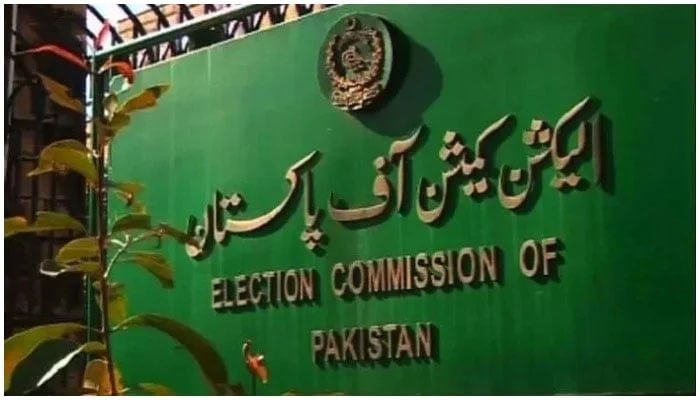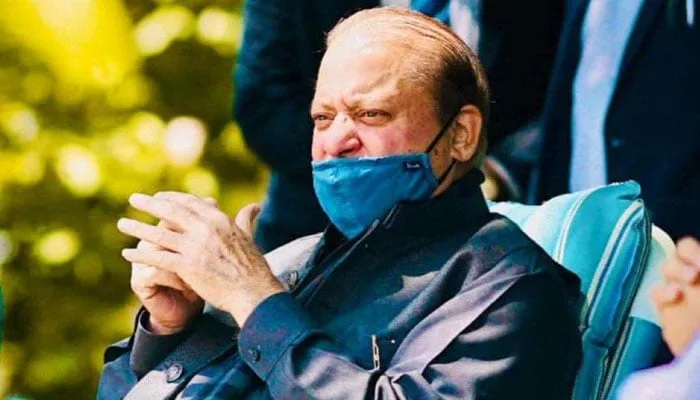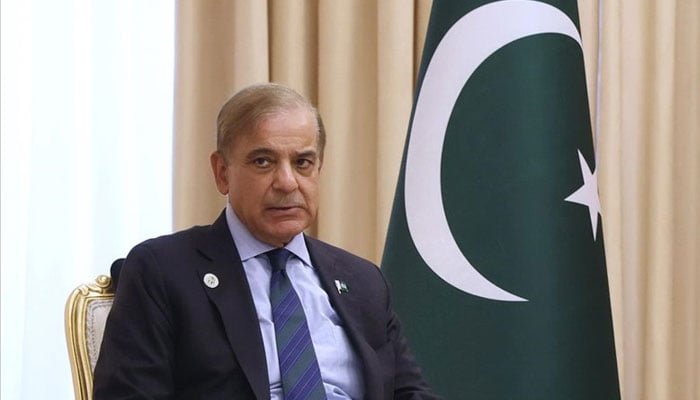In a strategic move to bolster its presence in Balochistan, the Pakistan Muslim League (Nawaz) – PML(N) – led by its charismatic leader Nawaz Sharif, has initiated a series of meetings and engagements in Quetta. The visit, marked by the participation of key political figures from Balochistan, aims to strengthen the party’s position in the province, particularly in the run-up to the upcoming elections.
Nawaz Sharif, alongside the central leadership of PML(N), arrived in Quetta, where they held discussions with influential political figures from various major parties in Balochistan. Among those present were former Chief Minister Jam Kamal, former Assembly member Salim Khosa, Noor Muhammad Dummar, Rababa Balidi, former Minister Sardar Abdul Rahman Kethran, Muhammad Khan Lehri, Sardar Masood Loni, Sardar Fatah Muhammad Hasni, Mujeeb-ur-Rehman Hasni, Meer Asim Kurd, Meer Dostain Domki, Shoaib Noshirovani, and representatives from Balochistan Awami Party (BAP), Balochistan National Party (BNP), and Pakistan Peoples Party (PPP), totaling over 30 prominent personalities.
The decision of these individuals to join PML(N) was announced during Nawaz Sharif’s visit, underscoring a significant shift in political alliances within the province. Notably, Rana Iftikhar, a key player in the Union Council elections in Gujranwala (as mentioned in the previous response), was also associated with PML(N).
Nawaz Sharif emphasized the historical importance of Balochistan and pledged to continue the tradition of working together for the progress and development of the province. He stated, “We have always walked together before and will continue this tradition, strengthening the bonds of cooperation with everyone.” This sentiment reflects a commitment to fostering unity among political entities for the collective benefit of Balochistan.
Shahbaz Sharif, the President of PML(N), echoed Nawaz Sharif’s sentiments, emphasizing the party’s dedication to alleviating Pakistan from economic challenges. The high-level delegation from PML(N) engaged in a comprehensive program, including meetings with former Chief Ministers Khan Mohammad Jamali, Faqir Jamali, Ghaffar Laddi, Shoaib Noshirovani, Zeen Mengal, and others.
This move by PML(N) signals a proactive effort to broaden its political base and influence in Balochistan, a province critical to the overall political landscape of Pakistan. The engagements with diverse political figures from various parties highlight the party’s commitment to inclusivity and collaboration, potentially reshaping the political dynamics in the region.
The extensive interactions between Nawaz Sharif and Balochistan’s political elite underscore the significance of regional cooperation and the imperative for political parties to forge alliances to address the challenges faced by the province. As Balochistan continues to grapple with socio-economic issues and political complexities, PML(N)’s endeavors to expand its footprint in the region indicate a renewed focus on regional dynamics and a commitment to playing a pivotal role in Balochistan’s political future.
In a strategic move to bolster its presence in Balochistan, the Pakistan Muslim League (Nawaz) – PML(N) – led by its charismatic leader Nawaz Sharif, has initiated a series of meetings and engagements in Quetta. The visit, marked by the participation of key political figures from Balochistan, aims to strengthen the party’s position in the province, particularly in the run-up to the upcoming elections.
Nawaz Sharif, alongside the central leadership of PML(N), arrived in Quetta, where they held discussions with influential political figures from various major parties in Balochistan. Among those present were former Chief Minister Jam Kamal, former Assembly member Salim Khosa, Noor Muhammad Dummar, Rababa Balidi, former Minister Sardar Abdul Rahman Kethran, Muhammad Khan Lehri, Sardar Masood Loni, Sardar Fatah Muhammad Hasni, Mujeeb-ur-Rehman Hasni, Meer Asim Kurd, Meer Dostain Domki, Shoaib Noshirovani, and representatives from Balochistan Awami Party (BAP), Balochistan National Party (BNP), and Pakistan Peoples Party (PPP), totaling over 30 prominent personalities.
The decision of these individuals to join PML(N) was announced during Nawaz Sharif’s visit, underscoring a significant shift in political alliances within the province. Notably, Rana Iftikhar, a key player in the Union Council elections in Gujranwala (as mentioned in the previous response), was also associated with PML(N).
Nawaz Sharif emphasized the historical importance of Balochistan and pledged to continue the tradition of working together for the progress and development of the province. He stated, “We have always walked together before and will continue this tradition, strengthening the bonds of cooperation with everyone.” This sentiment reflects a commitment to fostering unity among political entities for the collective benefit of Balochistan.
Shahbaz Sharif, the President of PML(N), echoed Nawaz Sharif’s sentiments, emphasizing the party’s dedication to alleviating Pakistan from economic challenges. The high-level delegation from PML(N) engaged in a comprehensive program, including meetings with former Chief Ministers Khan Mohammad Jamali, Faqir Jamali, Ghaffar Laddi, Shoaib Noshirovani, Zeen Mengal, and others.
This move by PML(N) signals a proactive effort to broaden its political base and influence in Balochistan, a province critical to the overall political landscape of Pakistan. The engagements with diverse political figures from various parties highlight the party’s commitment to inclusivity and collaboration, potentially reshaping the political dynamics in the region.
The extensive interactions between Nawaz Sharif and Balochistan’s political elite underscore the significance of regional cooperation and the imperative for political parties to forge alliances to address the challenges faced by the province. As Balochistan continues to grapple with socio-economic issues and political complexities, PML(N)’s endeavors to expand its footprint in the region indicate a renewed focus on regional dynamics and a commitment to playing a pivotal role in Balochistan’s political future.



